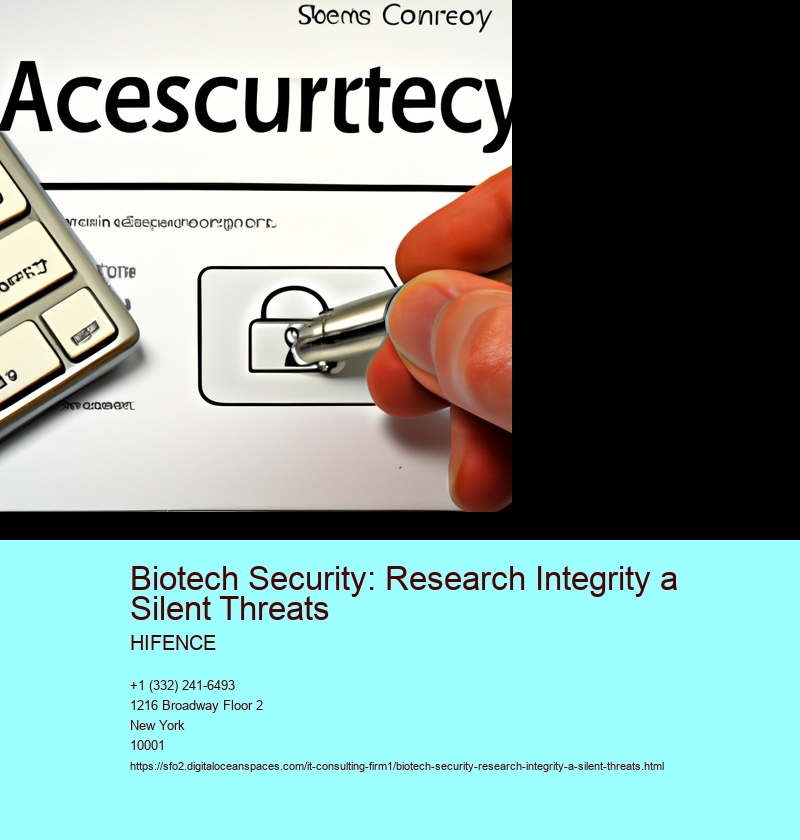Biotech Security: Research Integrity a Silent Threats
managed it security services provider
Biotech Security: Research Integrity-A Silent Threat
Biotech security often conjures images of lab coats, biohazard symbols, and fortified facilities, doesnt it? Biotech Security: Research Best Practices to Avoid . We picture stolen pathogens, weaponized viruses, and the potential for widespread harm. And thats absolutely a valid concern.
Biotech Security: Research Integrity a Silent Threats - managed services new york city
What do we mean by research integrity? Its more than just avoiding outright fraud (although thats certainly part of it). It encompasses a commitment to honesty, transparency, rigor, and ethical conduct at every stage of the research process. Think about it: from meticulously designing experiments to accurately reporting data, from properly acknowledging collaborators to responsibly interpreting results, integrity is the bedrock upon which reliable scientific knowledge is built.
So, how can this integrity be compromised? The pressures faced by researchers today are immense. check The "publish or perish" culture pushes scientists to prioritize speed and quantity over quality. Funding is fiercely competitive, leading to temptations to exaggerate findings or even fabricate data to secure grants. Conflicts of interest, whether financial or professional, can subtly influence research outcomes. And the complexity of modern biotechnology makes it increasingly difficult to detect errors or misconduct, especially when obscured by sophisticated statistical analyses (or, perhaps, deliberately misleading ones!).

The consequences of compromised research integrity are far-reaching. managed it security services provider Imagine a flawed drug entering clinical trials based on falsified preclinical data. The potential for patient harm is obvious. Or consider the impact of retracted scientific papers on public trust in vaccines or other life-saving technologies. The ripple effects can erode confidence in science as a whole, fueling skepticism and hindering progress in addressing critical global challenges like climate change and disease. Its a slow burn, perhaps, but a very dangerous one!
Addressing this silent threat requires a multi-pronged approach. We need to foster a culture of ethical awareness and responsibility within research institutions. This includes providing comprehensive training on research ethics, establishing clear guidelines for data management and reporting, and creating safe and supportive environments where researchers feel empowered to raise concerns without fear of reprisal. Funding agencies need to prioritize rigorous peer review and data verification processes. And journals must strengthen their mechanisms for detecting and investigating scientific misconduct.
Ultimately, safeguarding biotech security requires more than just physical barriers and biosecurity protocols. It demands a deep and unwavering commitment to research integrity at all levels. managed services new york city By fostering a culture of honesty, transparency, and accountability, we can ensure that biotechnology serves humanitys best interests and avoid the potentially catastrophic consequences of a corrupted scientific foundation.
